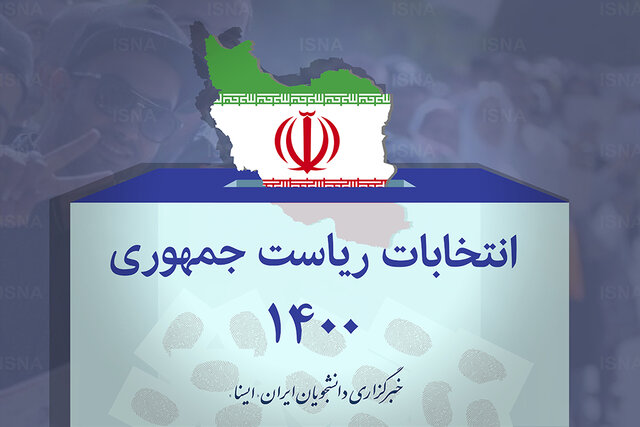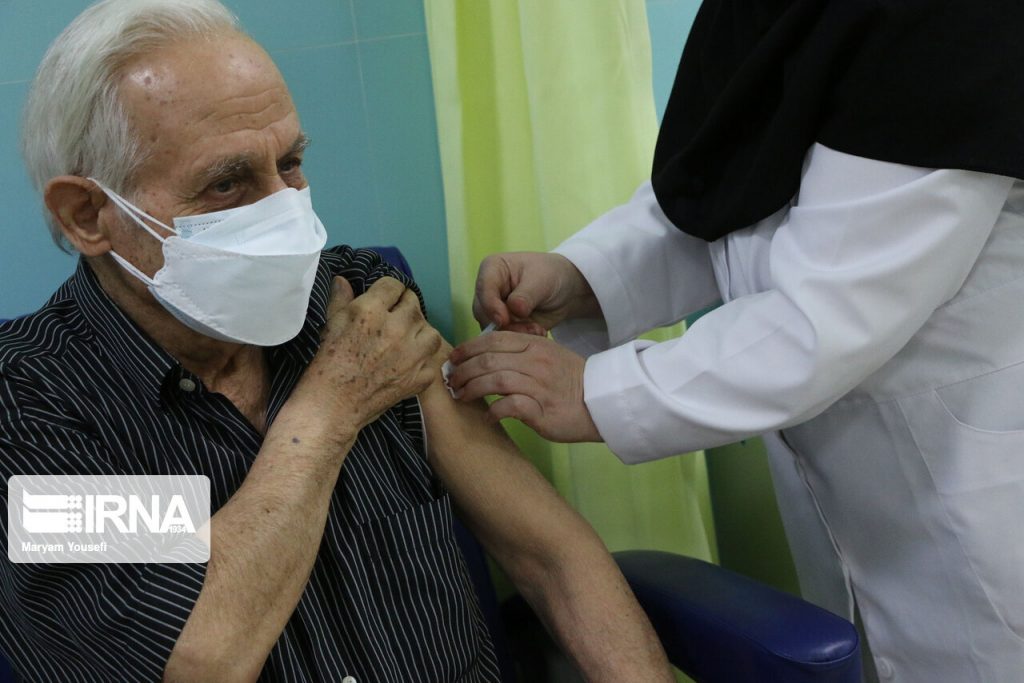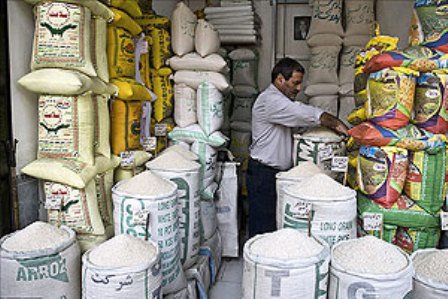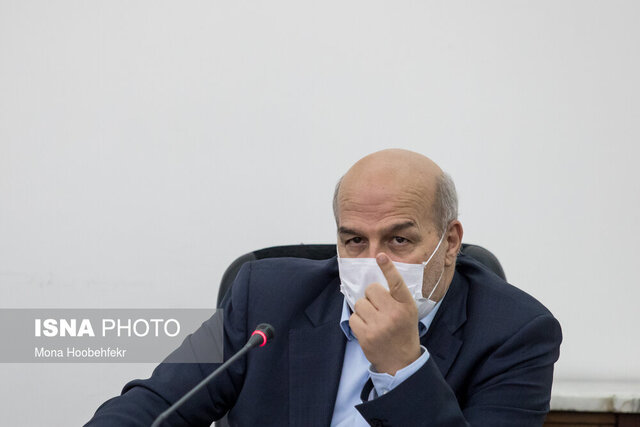
Overcoming People’s Distrust Is Difficult
The editorial of Ebtekar argues that to resolve the current issues that exist in Iran, a strong government is needed that can regain people’s trust, or else the next government is going to fail in dealing with major problems like the previous ones.
The main issue is forming a strong government in Iran. Such a government will have enough legitimacy, popularity and credibility to have plans as well as the capability and resolve to change the country’s conditions and overcome the obstacles. As such, the government will be able to implement its plans and find a way out of the current dire situation which exists in the country.
The reason why the public is wary of the various slogans of the presidential candidates is not just because some of their promises are illogical, unscientific and unrealistic, it is also because past elections have shown that public confidence in candidates depends on their resolve and capability to fulfill their promises. In other words, the public asks: are any of the candidates determined to form a strong government and overcome the main obstacles which the former governments had to face? If not, the next government too will soon be doomed to the destiny of previous governments.
The first debate held among seven presidential candidates – despite their strong attacks against each other – couldn’t mobilize people to take part in the upcoming election. But the candidates made some remarks that pointed to the reasons for Iran’s successive weak governments.
In the first debate, the presidential candidates pointed to: mismanagement, the necessity of overcoming economic problems, the lack of planning in pursuing sustainable economic growth, unbridled inflation, unemployment, the housing crisis, the inability to take advantage of economic capabilities, not leveraging trade opportunities with neighboring countries, the collapse of the national currency, poverty, etc.
These issues are real, but none of the candidates explained why these issues have been created. Going over the problems without having an effective plan for creating a strong government will not appeal to people who are struggling with all these problems on a daily basis and have lost trust in the government.
Populist Promises by Presidential Candidates
The editorial of Aftab Yazd emphasizes that the presidential candidates must stop making populist promises and must announce their specific plans to deal with the serious problems that the Iranian people are facing now.
It is election season and the presidential candidates are trying hard to win. Under the current circumstances when the country is suffering from multiple problems, people and experts expect the candidates to run their campaigns based on plans for saving the country. Nevertheless, we are witnessing that the candidates are making populist promises, while it is a fact that in today’s world, development and welfare can only be achieved through proper planning.
On the other hand, collective experience has revealed the destructive impact of populism, indicating how harmful and dangerous populism is for society. The current problems exist in Iran partly because for eight years populist ideas and weak governance have plagued the country.
But once again, populist promises – which, under the current circumstances are poisonous for the country – abound in the presidential campaigns. For example, while the government can barely provide the budget for paying the current cash subsidy of 45,000 tomans, the candidates are promising to increase subsidies.
Candidates must give written plans with regard to the following questions:
1. What strategies do they have for lifting US sanctions which have paralyzed the country?
2. How are they going to increase economic growth from zero to 8 percent – as indicated in Iran’s 20-Year National Vision?
3. How are they going to solve the issue of bankruptcy of pension funds?
4. How are they going to decrease the inflation rate from 40 percent to under 10 percent?
5. How are they going to tackle the 40 percent unemployment rate of the youth?
6. What are their plans regarding the brain drain?
7. What do they want to do to stop the destruction of the environment and natural resources?
8. What do they have in mind for dealing with the water crisis which is a serious threat to the country’s national security?
9. Candidates must announce their plans regarding ethnic minorities.
10. They must declare their specific strategies for foreign policy.
Presidential Candidates and the Three Main Issues Facing the Political Economy
The editorial of Jahan Sanat identifies three main economic problems in Iran, calling for the presidential candidates to explicitly announce their plans on how they are going to deal with these problems in case they are elected.
The seven candidates who have been qualified by the Guardian Council to run for president continue their campaigns. A careful look at the candidates’ words shows two common points: most of their words regarding the economy are like that of welfare states which have been already discredited all over the world. Second, the candidates mostly criticize the record of the current government and do not say much about the main issues facing Iran’s economy.
Since Donald Trump pulled out of the JCPOA, Iranians have been grappling with three types of problems in the political economy. The first problem is mounting inflation which is kneecapping Iranian families. The second problem is US sanctions which have made it difficult for Iran’s economy to breathe. The third unresolved issue is the extensive instability in economic policymaking, which seems to have had dire consequences.
Economic instability – which stems from inefficient policies regarding currency, financial issues and the public budget – has resulted in the tragedy of the budget deficit this year. Iran’s budget is inflated and inflation will most probably rise this year. This year, if the issues of US sanctions and coronavirus continue, Iran’s economy will continue to suffer from a drop in production and investment.
The abovementioned issues must be considered in light of the fact that there is no comprehensive social security system to eradicate poverty in Iran. If this year no solution is found for the abovementioned challenges, Iran will have to face more serious problems in the coming years.
Presidential candidates have not offered any solutions for these three big challenges for Iran’s political economy. Now that they are campaigning, they can unambiguously say how they are going to face US sanctions. Citizens are entitled to know how these candidates intend to deal with the issue of US sanctions.
Critics of Hassan Rouhani’s government know very well about the fallout of sanctions on the government’s revenues, but they close their eyes to the impact of sanctions on the large-scale economy.
May God Protect Us From Populism!
As we are getting closer to the presidential election in Iran, candidates are promising the moon to people to gain their votes. The editorial of Tejarat, written by economic expert Gholam-Hossein Davani, warns that these promises are nothing but populism and the candidates are not going to keep them.
Election campaigns have started in Iran, but so far there has been nothing but slogans and no program has been offered yet. On the other hand, the candidates’ economic plans – basically giving large loans and subsidies – are nothing but slogans and populism.
Since the revolution, all presidential candidates have had no problems in talking about existing problems and issues. But although the country’s problems have been raised, no solution has been offered. And what has been offered has been nothing but slogans.
This is because offering solutions is against the interests of certain groups. And it seems that the candidates are thinking of protecting the interests of these groups. So, it is very unlikely that these candidates will attack the interests of certain groups that are in power.
It must be admitted that the country’s problems are structural, and addressing them requires practical plans. Chanting slogans might be good for politics, but it is useless for the economy, as the foundations of economic science are the same all over world and the solutions are similar. These candidates are probably not interested in restructuring the economy in Iran.
Meanwhile, we can see that the candidates keep promising to provide banking facilities to people, including giving large loans and paying more cash subsidies. But they must be simply asked: where are you going to get the money from?
Giving subsidies and loans are merely populist slogans and any candidate who is elected won’t be able to keep his promises. The problem of the Iranian people, however, is not receiving loans, subsidies, or charities. They want the cycle of production to start and more jobs to be created.
Iran needs a president who is committed to protecting people’s interests against the interests of power groups in society.

First Presidential Debate: Candidates Accusing Each other, Offering No Solutions for Hurdles

The first presidential debate, aired on Iran’s state television, portrayed seven candidates pointing fingers and lashing out at each other for the country’s numerous problems without putting any plans on the table to address them.
Two reformist candidates Abolnasser Hemmati, former central bank governor, and Mohsen Mehr Alizadeh, former head of the Physical Education Organization, repeatedly berated Ebrahim Raisi, current judiciary chief – who has not resigned from his position despite running for the presidential election.
Mehr Alizadeh lambasted Raisi for his lack of education, saying: “You have only studied six years of primary school. One cannot improve the economy with such a level of literacy.”
Hemmati, in reaction to principlist candidates’ attacks on Rouhani’s administration, said: “I prevented the country from becoming another Venezuela. And now I plan to prevent the country’s economy from becoming a North Korean economy.” Raisi, however, blamed Hemmati for the skyrocketing prices of the US dollar in Iran: “And now they say if it wasn’t for us, there would be famine.”
Ali Reza Zakani, former MP and head of the Student Basij at Tehran University, noted that all administrations managed the country through oil revenues, “but Rouhani’s administration did it through people’s pockets.”
Mohsen Rezaei, former IRGC commander, threatened Hemmati and other members of Rouhani’s government with being barred from leaving the country and putting them on trial.
Although the debate was about economic problems, not a single word was mentioned about the huge impact of US sanctions on Iran’s economy.
Meanwhile, the latest polls in Iran show the number of people who will not vote has increased, according to ISNA. Many groups and dissidents of the Islamic Republic government have previously boycotted the presidential election due to political suppression, the dire economic conditions and the killing of protesters in demonstrations. Not to mention that a number of major reformist parties, like the Association of Combatant Clerics, have refused to present any candidate for this election.
Coronavirus in Iran: Fifth Wave to Start in Southern Provinces

As the cases of Covid-19 climb in the Iranian southern provinces, officials have started to sound the alarm on the start of the fifth wave of this disease in the country. At the same time, some cities are running out of vaccines and people have not been able to receive their second doses.
Officials in medical universities in Kerman, Bushehr, Kermanshah, Sistan and Baluchistan reported mounting cases of this disease in these provinces. Not to mention that the number of hospitalized patients in Tehran has climbed in recent days, according to Ali Reza Zali who heads the coronavirus operations in the capital.
Furthermore, the political and security deputy of the governor’s office in Hormozgan said the coronavirus outbreak in this province is severe with young individuals losing their lives because of it. Ali Raoufi that added the Indian and African variants have been identified in Hormozgan.
Meanwhile, the University of Shiraz announced that the vaccination process had stopped due to the lack of vaccines. The secretary of the Health Council in Ahvaz made the same announcement. Moreover, a number of people in different cities were reportedly unable to receive their second dose because of vaccine shortages.
The spokesman for the Headquarters to Combat Coronavirus, Ali Reza Raisi, implicitly confirmed problems in providing vaccines in an interview with IRNA, saying the delay in the receipt of “a vaccine shipment containing 3 million doses from one of the countries” is the reason for such shortages.
According to the latest Health Ministry announcement, more than 4,203,784 people have received their first dose of the vaccine and 619,795 their second dose in Iran – whose population is 83 million at present.
Population Below Absolute Poverty Line Doubled, Reaching 25 Million People

The number of people living below the absolute poverty line in Iran has doubled compared to two years ago, according to the head of the Social Security Organization Research Institute.
Ruzbeh Kardouni said research has been conducted about poverty and inequality in Iran, the results of which will be soon reported to the public by the labor minister. One of the findings of the research, according to Kardouni, is that the population below the poverty line has reached 25 million people.
In recent years, Iran’s economy has suffered from chronic problems of inflation, recession, negative growth, unemployment and corruption.
The research about absolute poverty and inequality in Iran shows that the population below the poverty line was 15 percent from 2013 to 2017, but from 2017 to 2019 it increased to 30 percent, says Kardouni.
The absolute poverty line identifies individuals or households that cannot meet their own basic needs, which include having access to food, healthy drinking water, proper shelter, education and healthcare.
In the meantime, prices keep skyrocketing, expenses are not proportionate with household incomes and people’s tables keep shrinking.
After the increase in the prices of sugar, cooking oil and bread, now the price of Iranian rice has doubled compared to last year and there is a shortage of it.
A 30 percent to 40 percent rise in prices of essential food items is not at all proportionate with household incomes that have remained fixed.
The reason for the increase in prices of imported rice is said to be because several tons of rice are stocked in ports and customs offices. According to the latest report of Iran’s Statistical Center, the price of Iranian rice has been fluctuating from 30,000 tomans to 47,000 tomans per kilogram.
The report also reveals that food items – including bread, different kinds of meat, dairy, eggs, cooking oil, fruits, dried nuts, sugar, vegetable and beverages – were subject to a 2 percent to 40 percent increase in urban areas last month.
Water Bankruptcy: 153 Iranian Cities Suffering From Water Tensions

The head of Iran’s Department of Environment Isa Kalantari has warned about the water crisis in the country, saying “we have reached water bankruptcy which is the country’s gravest problem.” Kalantari added that the water crisis in Iran is much more catastrophic than what officials say.
Comparing statistics over the past three decades, Kalantari noted there used to be 2,300 cubic meters of renewable water per person in 1988 but now there is less than 700 cubic meters of renewable water per person for 70 percent of the population. He continued, “The water war has started among the provinces” and it has now reached villages as well.
Kalantari also stated that the government organs play key roles in destroying the environment in Iran. He added that some say Iran can provide food for 500 million people; “evidently, they have no idea about the country’s resources and capacities.” Kalantari was citing a report by the IRGC-affiliated Tasnim News agency in which it was claimed the country has the capacity of providing high-quality food for at least 500 million people by improving its agriculture.
Meanwhile, Esmaeil Najar, head of the Crisis Management Organization, said water for 7,000 villages had to be provided by tankers. Besides, the deputy minister of energy announced that 153 cities in Iran are suffering from water tensions due to the lack of rain over the past year, “the worst year in the past 52 years in terms of rainfall.” Mentioning that reservoirs of dams suffer from a 28 percent water shortage, Najar noted that the country cannot provide water for summer crops.
Based on a 2019 report by the World Resources Institute, Iran is on top of the list of countries grappling with “extraordinary crisis” in terms of water and it is on the verge of losing all its water resources.
